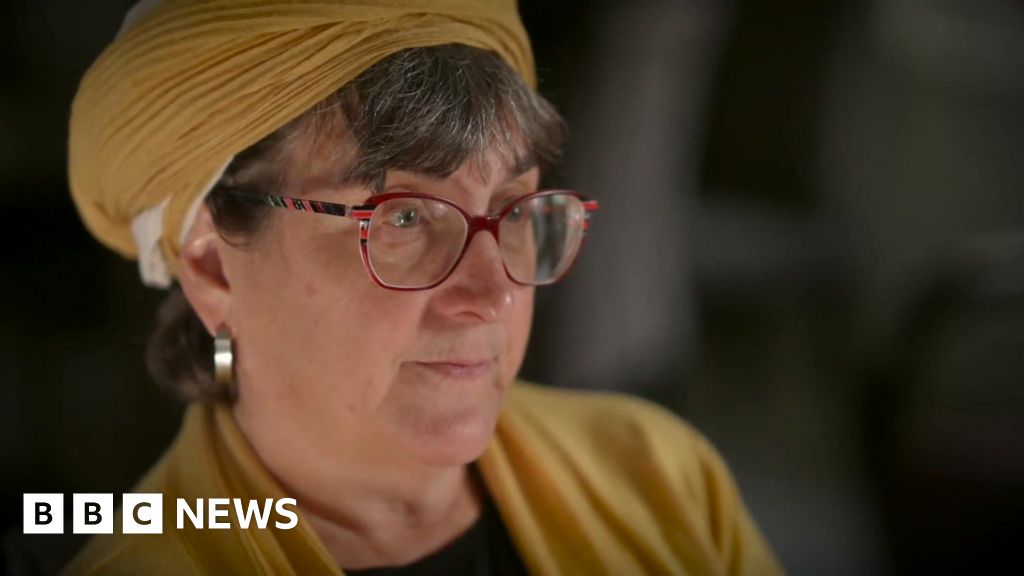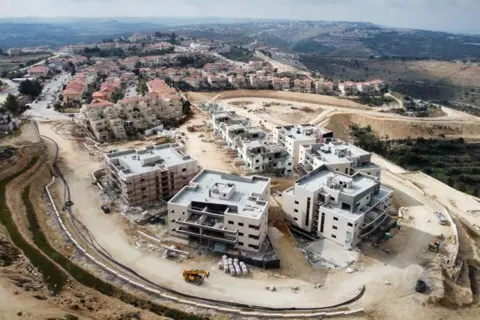 EPA
EPAOn a clear day, the skyscrapers of Tel Aviv are visible from the hill above Karnei Shomron, an Israeli settlement in the occupied West Bank.
“I feel different from Tel Aviv,” said Sondra Baras, who has lived in Karnei Shomron for nearly 40 years. “I live in a place where my ancestors lived thousands of years ago. I don’t live in occupied territory; I live in biblical Judea and Samaria.”
For many settlers here, the border between the state of Israel and the territory it captured from Jordan in the 1967 Middle East war has been erased from their narrative.
The visitors’ audio guide at the hilltop viewpoint describes the West Bank as “a region of Israel” and the Palestinian city of Nablus as the place where God promised the land to the Jews.
But formal annexation of this territory has so far remained a dream for settlers like Sondra, even as settlements – seen as illegal by the UN Supreme Court and most other countries – have mushroomed year after year.
Now many see an opportunity to go further, with the election of Donald Trump as the next president of the United States.
“I was thrilled that Trump won,” Sondra told me. “I very much want to expand sovereignty in Judea and Samaria. And I feel like that’s something Trump could support.”
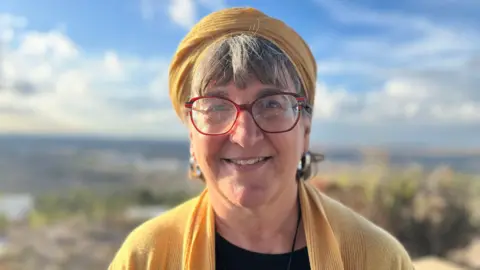
There are signs that some in his incoming administration may agree with her.
Mike Huckabee, nominated as Trump’s new ambassador to Israel, signaled in an interview last year his support for Israeli claims on the West Bank.
“When people use the term ‘occupied,’ I say, ‘Yes, Israel is occupying the land, but it’s the occupation of a land that God gave them 3,500 years ago. It’s their land,'” he said.
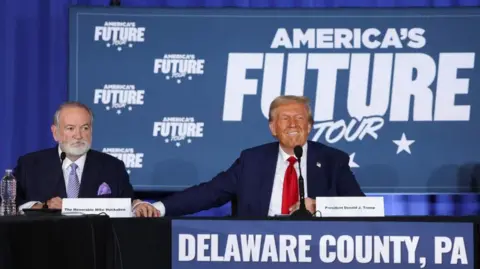 Reuters
ReutersYisrael Gantz, head of the regional settlement council that oversees Karnei Shomron, says he has already noticed a change in tone from the incoming Trump administration as a result of the October 7, 2023, Hamas attacks on Israel that triggered the war against Gaza.
“Both here in Israel and in the United States, they understand that we have to exercise sovereignty here,” he told me. “It’s a process. I can’t tell you it will be tomorrow. But in my eyes, the dream of a two-state solution is dead.”
US President Joe Biden has always maintained the US position in support of a future Palestinian state alongside Israel. Asked if he heard anything else from the incoming Trump administration, Mr. Gantz: “Of course, yes.”
But there are also signs that Israelis lobbying for the annexation of the West Bank – some of them in cabinet positions – may be disappointed by Trump’s decisions.
Their hopes have been fueled by memories of his first term as president, when he broke with decades of American policy — and international consensus — by recognizing Jerusalem as Israel’s capital and Israeli sovereignty over the occupied Golan Heights, which was captured from Syria in 1967.
 EPA
EPABut supporting an annexation of the West Bank would be a much bigger and more difficult issue for Trump.
That would likely alienate Washington’s other key ally, Saudi Arabia, and complicate Trump’s chances for a broader regional deal.
It could also alienate some moderate Republicans in the US Congress, worried about the impact on Palestinians in the West Bank and their future status under Israeli rule.
Settler leader Sondra Baras told me that Palestinians in the West Bank who did not want to live in Israel could “go wherever they want.”
Challenged on why they should leave their homeland, she said: “I’m not kicking them out, but things change. How many wars did they start? And they lost.”
“If sovereignty were to go forward, there would be a lot of shouting and screaming, absolutely,” she continued. “But at some point you create a fact that is irreversible.”
Shortly after Trump’s election victory last November, Israel’s far-right finance minister, Bezalel Smotrich, publicly called for the annexation of Israeli settlements in the West Bank.
“2025 must be the year of sovereignty in Judea and Samaria,” he said.
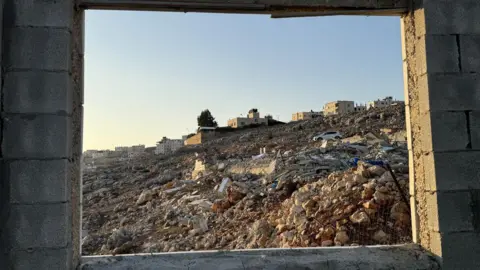
Whether the new US president agrees or not, many Palestinians say the discussion of formal annexation misses the point – that in practice Israel is already annexing territory here.
One of them is Mohaib Salameh. He leads me over the rubble of his family home, built on private Palestinian land, on the outskirts of Nablus. The building was ruled illegal by an Israeli court last year and demolished.
Israel has full control over security and planning in 60% of the West Bank on a temporary basis, as outlined in the Oslo Peace Accords three decades ago.
As the settlements expand, permits are almost never granted for Palestinian homes. And advocates say demolitions like this are on the rise.
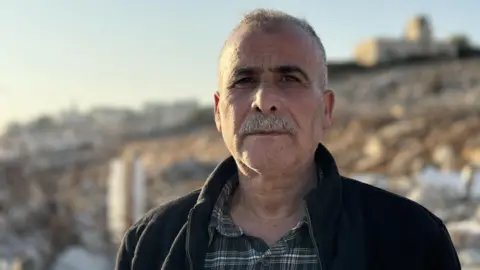
“This is all part of politics to force us to leave,” Mohaib said. “It is a policy of forced migration. What difference does it make to them [Israelis] whether i build here or not? We pose no threat to them.”
Palestinians are also increasingly being forced off their land by violent Israeli settlers – who have been sanctioned by the US and UK but left largely unchallenged by Israeli courts at home.
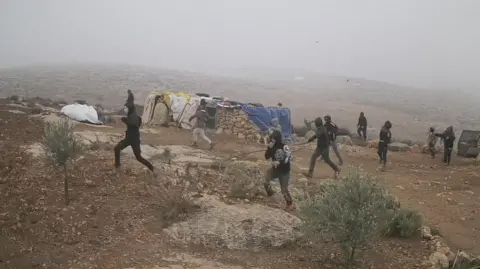 B’Tselem
B’TselemActivists say more than 20 Palestinian communities in the West Bank have been displaced over the past few years by increasingly violent attacks, and that settlers are now pushing into new areas outside Israel’s temporary civilian control.
Mohaib told me that no American president had ever protected Palestinians, nor does he believe Donald Trump will.
The next president of the United States is widely seen as a friend of Israel.
But he is also a man who also likes to close deals – and avoid conflicts.
